Quarterly Review of Business & Consumer Surveys – February 2023



The WE MAKE project continues to bring together key players in industry to offer an innovative vision towards greener industry
The Malta Chamber, EWA, AND MBB hosted a session on Energy Monitoring in Manufacturing, bringing together institutions and leading businesses to share best practices and highlight funding opportunities. STMicroelectronics and Seifert showcased their energy monitoring systems in operation, indicating the savings obtained and the procedures and best practices. Malta Enterprise and the Measures & Funds Division afterwards explained some key funding opportunities of direct relevance to energy monitoring. This is the sixth event of the WE MAKE project, an initiative established to encourage the uptake of energy efficiency measures in local manufacturing companies.
Incorporated into the discussion, the companies covered ISO as one of the topics. STMicroelectronics showcased its ISO 50001 management system. It provides requirements for establishing, managing, and improving energy consumption and efficiency. It is designed to be compatible and harmonised with other similar standards such as ISO 14001, which Seifert possesses. ISO 50001 assists facilities in the evaluation and prioritization of new technologies and better handling energy use and consumption, creating transparency and improved communication. It also entails a framework for increased energy efficiency through the supply chain. STMicroelectronics also emphasised the importance of internally set KPIs, energy meters and best practices such as weekly monitoring procedures and comparing consumption with production. With a target of being carbon neutral by 2027, STMicroelectronics is considering not only Scope 1 emissions, but also Scope 2 & 3, which imply that the company considers not only its direct emission but also those in its value chain.
Seifert’s journey towards greener operations results from various energy monitoring initiatives. Its targeted monitoring activities, such as on specific machines such as its vacuum furnace and compressed air system, allowed the company to identify how one old machine alone accounted for 19.5% of the company’s annual energy bill. As a result, the company opted for a new machine system. Through application of Industry 4.0 principles, a new intelligent sheet metal management system by Seifert will allow full traceability of components and resources and enable the most efficient possible operation. Scrap and waste will be minimised due to the optimal nesting system. Seifert’s ISO 9001 and ISO 14001 certification are a core component of their process of continuous improvement.
Having provided inspiration for project ideas and improvements, the WE MAKE project then invited Malta Enterprise and the Measures & Support Division to showcase their schemes. Between them, there was scope to pursue sustainable digitalisation. In other words, the implementation of energy monitoring systems or Industry 4.0 software to increase efficiency and thus also competitiveness. Further information may be found on their respective websites.
Aiming to hold a monthly workshop from now until the end of July, the WE MAKE project continues to bring together key players in industry to offer an innovative vision towards greener industry.
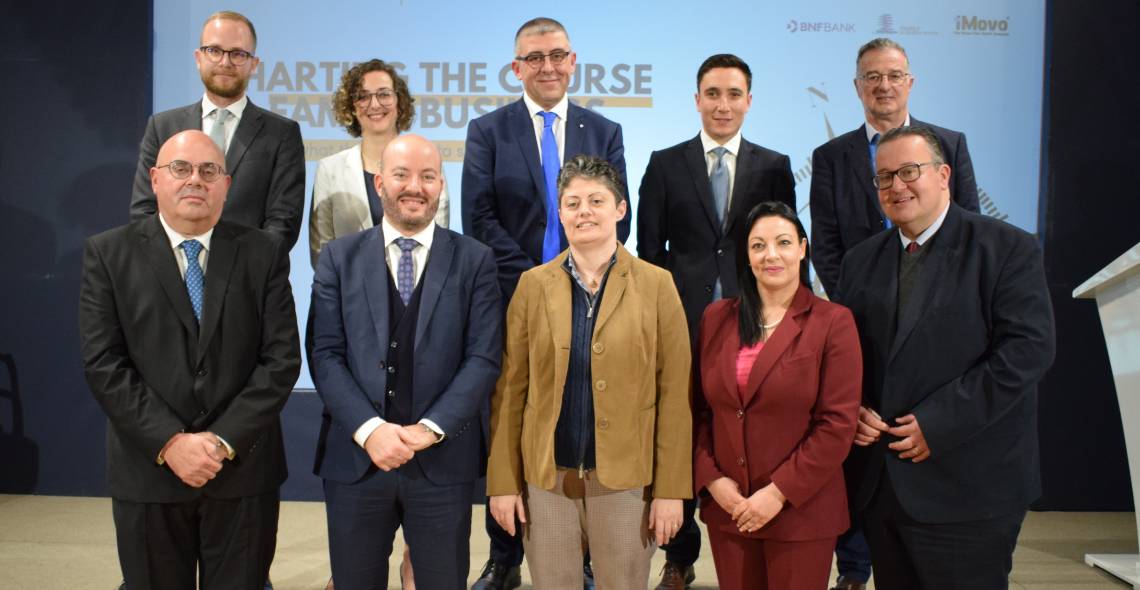
In continuing its support for family businesses The Malta Chamber of Commerce, Enterprise and Industry holds an event on preparing family businesses to face the challenges ahead.
On Wednesday, The Malta Chamber Family Business Committee held a business conference entitled “Charting the Course for Your Family Business” in which a number of speakers and panellists discussed the results from a survey that was published during this conference. Over 100 family businesses participated in this survey.
Speaking about one of the main themes emerging from the event, Marisa Xuereb, President of The Malta Chamber said, “The survey results make for some alarming reading, with many of our family businesses falling short of implementing basic and vital elements of good governance which are a necessity for their continued success. I hope that one of the outcomes of today’s event is that we start the process of rectifying this situation for our collective good.”
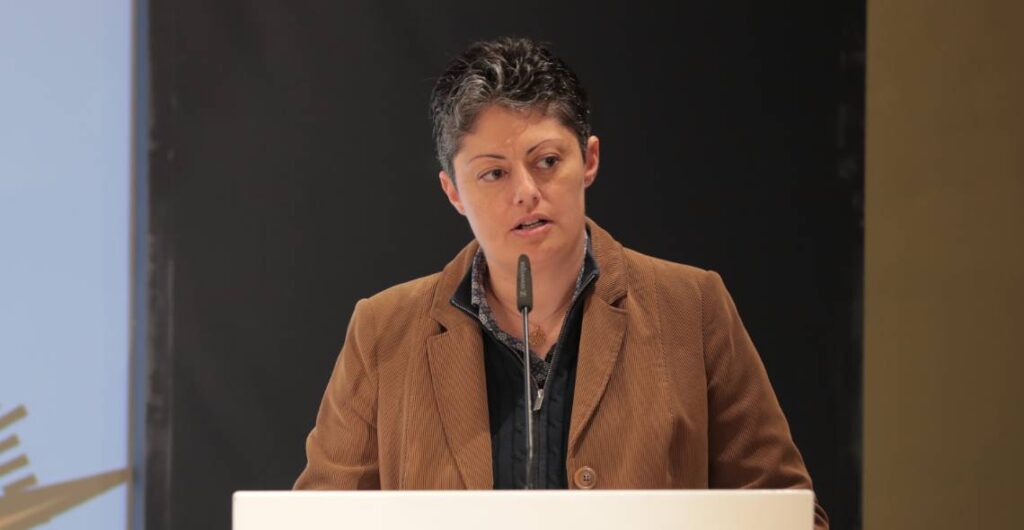
The President’s sentiments were echoed by Mr. Silvan Mifsud, Chair of The Malta Chamber’s Family Business Committee, as he presented the survey results and delivered his analysis. “The challenging external environment means that Family Businesses need to shape up to grow and survive. The survey undertaken with over 100 different family businesses outlines the areas which require improvement and adjustment of priorities.”
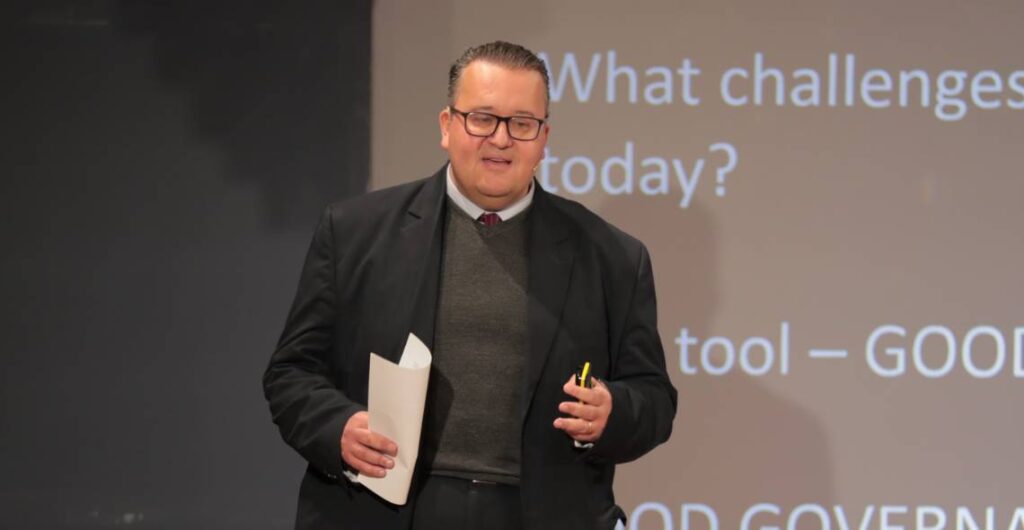
“The government understands that the continuity of family businesses is essential, but not necessarily easy and often requires family business owners to make choices and take decisions which are difficult. This may lead to further hurdles which go beyond any day-to-day work that any other business would need to face,” Enterprise Minister Miriam Dalli said.
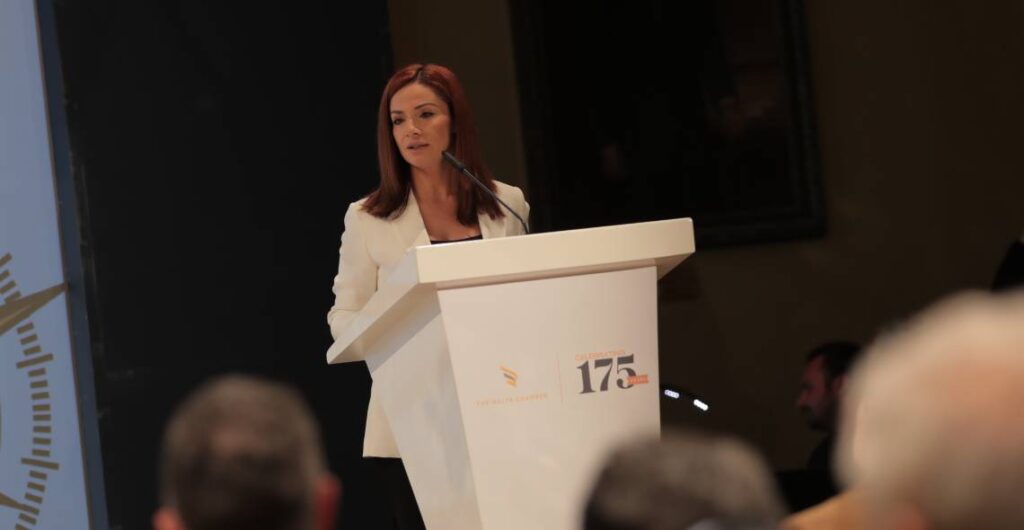
“We also understand that the process of succession and continuity of businesses does not happen overnight. It takes time, pain staking efforts and strong relationships which aren’t always easy to nurture in view of the internal dynamics underlying each and every family business. It is for this reason that a long-term strategy is required to understand the needs of family businesses and to identify support is needed the most.”
Dr. Joseph Gerada, Regulator at the Family Business Office, drew attention to the vital role that family businesses play in the Maltese economy. In his remarks he pointed out that “Facts now show us that family businesses locally have developed, and some have grown to become great businesses over the years. However, it is also clear that this growth requires planning ahead and this is one aspect that family businesses must focus on. This is what we mean by charting your course, it is ensuring the continuity of your business and its continued success”.
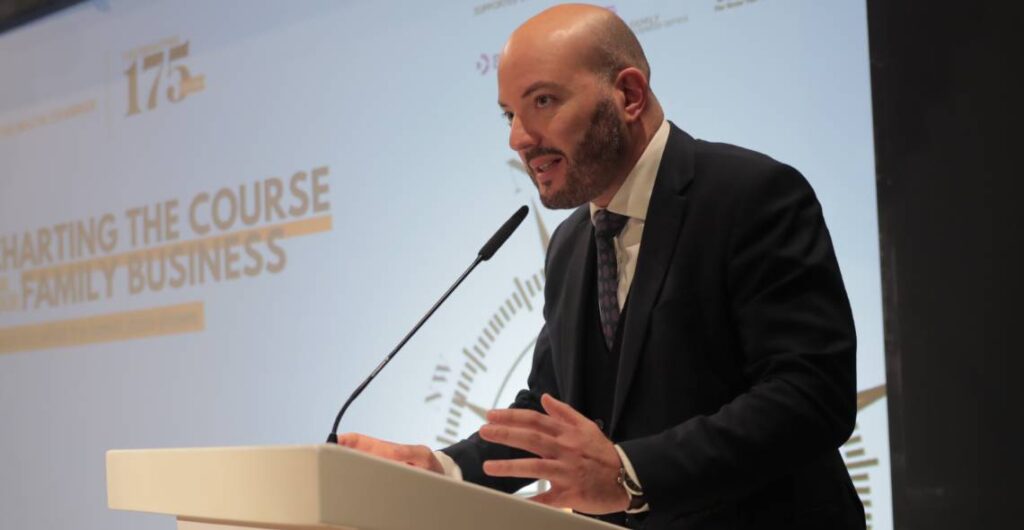
The results of the survey show that 17% of family businesses do not have a functioning board of directors, and that almost all of these businesses do not have a written strategic plan. In addition, only a third of all family businesses have a written succession plan, a vital component in the long-term success of any family business.
During the first panel on the importance of good corporate governance and planning, Dr. Marthese Portelli, CEO at The Malta Chamber, discussed the survey results and how they show that many family businesses lie at either end of the corporate governance and strategic planning spectrum. In this respect she pointed out some family businesses have a highly developed governance and planning structure with a succession plan, a functioning board of directors and a strategic plan while almost all of those family businesses with no functioning Board of Directors also have no written strategic plan.
Speaking on the same panel Mr. Kurt Muscat, Senior Advisor, EMCS, spoke about the service that EMCS Advisory together with AIS Environment have developed to give business leaders and owners a 360-degree view of their business. This service, based on the experience and knowledge of the EMCS team, enables businesses to link the various elements within their organisation, understand where they need to improve and ultimately perform better.
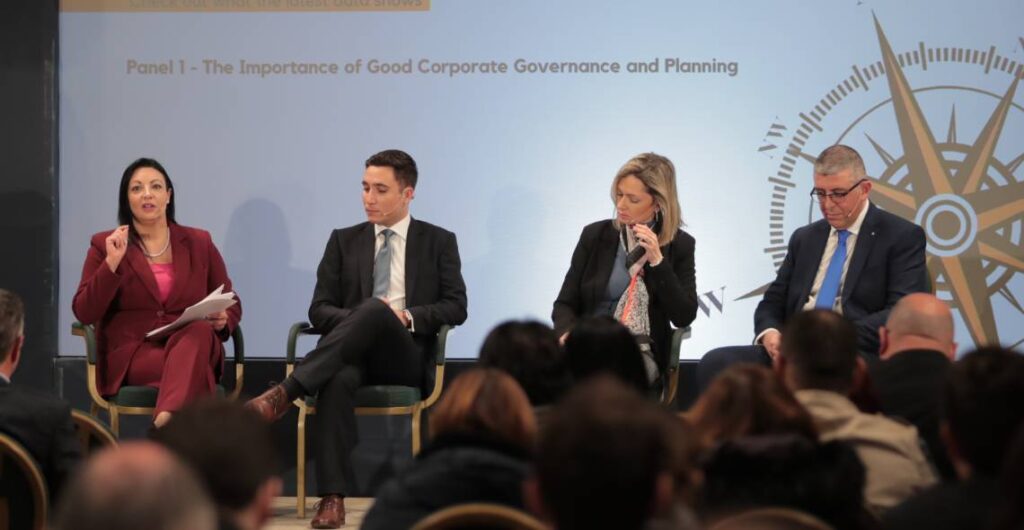
The survey also shows that family businesses are starting to list green initiatives and digitalisation amongst their priorities, points which were highlighted during the second panel of the event based on these subjects. Ms. Yasmin Schembri, Senior Consultant at AIS Environment, spoke about the fact that green businesses are not just good for the environment, but they are also cheaper to operate. During the event she spoke about how switching to energy and resource efficient practices is a simple way for businesses to get ahead of their competitors. In this respect she remarked that experts at AIS Environment and EMCS Advisory are skilled at finding the best and simplest solutions to help businesses thrive.
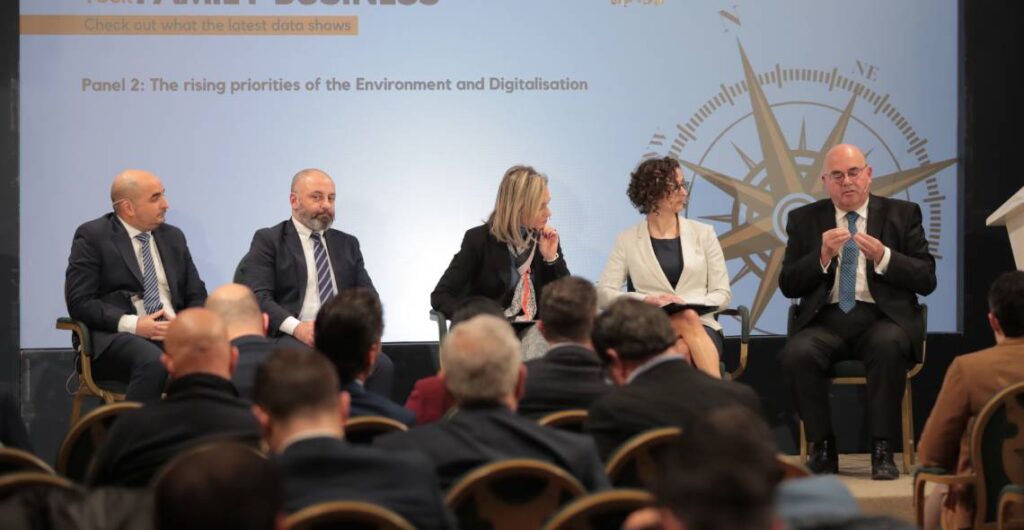
In addition to above mentioned individuals the event was also addressed by Mr. George Debono, CCO at BNF Bank, and Joanna Gatt, Executive Director at Vivian Corporation, all three of whom took part in the first panel discussion. The second panel debate was also addressed by Mr. Reuben Debono, Director at Maypole Holdings Ltd, Mr. Kurt Farrugia, CEO at Malta Enterprise and Hadrian Joseph Sammut, Chief Officer Advisory & Projects at iMovo. Both panel were moderated by Rachel Attard, Head of Media and Communications Strategist at The Malta Chamber.
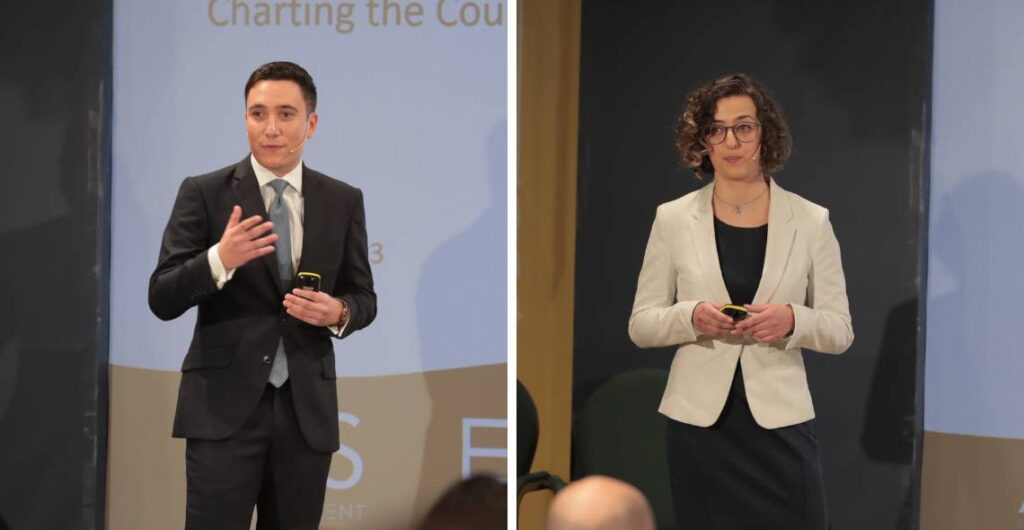
The event was sponsored by EMCS Advisory and AIS Environment and Supported by BNF Bank, the Family Business Office and iMovo